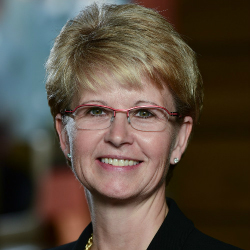
According to a new Deloitte survey, while commercial use of blockchain may still be limited, global executives with excellent-to-expert knowledge of the technology are poised to make some major moves over the next year. The survey covered more than 1,000 executives at major corporations across seven countries. Deloitte conducted the survey in March and April 2018. These are summary results. A broader report will appear in June.

“We are at an inflection point — momentum is shifting from a focus on ‘blockchain tourism’ and exploring the technology’s potential to building practical business applications,” said Linda Pawczuk, a principal with Deloitte Consulting LLP and the head of Deloitte’s U.S. financial services blockchain group. “I regard these blockchain-savvy executives’ views as a leading indicator. As more organizations put their resources behind this emerging technology, we expect blockchain to gain significant traction as its potential for greater efficiency, support for new business models and revenue sources, and enhanced security are demonstrated in real-world situations.”
Deloitte research headlines
From those surveyed, 74% report that their organizations see a ‘compelling business case’ for the use of blockchain. Many of these companies are moving forward with the technology:
- about half of the 74% (34%) say their company already has some blockchain system in production
- another 41% of respondents expect their organizations to deploy a blockchain application within the next year.
- nearly 40% of respondents reported their organization will invest $5 million or more in blockchain technology in the coming year.
This suggests the coming year will be significant for commercial blockchain activity, at least among those companies already active with the technology. Balancing this – 22% of global respondents (and 30% of U.S. respondents) say they lack a compelling application to justify its implementation.
Further Deloitte research findings
The survey identifies other bullish indicators:
- 84% (or respondents) agreed blockchain is broadly scaleable and will attain mainstream adoption.
- 59% believe in blockchain’s potential to disrupt and up-end their industries, and even the overall economy.
- 43% indicate blockchain as one of their “top five strategic priorities.
When asked which blockchain use-cases they are working on:
- 53% identified supply chain-focused systems.
- 51% reported Internet of Things integration projects.
- >40% highlighted initiatives involving digital records.
- 30% are creating payments applications.
- 40% identified digital currency projects.
Almost 30% of respondents have already joined an existing consortium. Another 45% said they are likely to join one within the next year. More than 13% stated an interest in starting a consortium of their own.
Not all is rosy
Despite all the above (essentially measurements of respondents’ interest in blockchain), some 39% of the global sample believe blockchain is ‘overhyped'(in the U.S. this higher at 44%). This is markedly higher than the 34% in a 2016 survey by Deloitte.
“While this may seem like blockchain is trending in the wrong direction, we believe this change in attitude is more reflective of the shift toward the pragmatists in the blockchain community,” said Pawczuk.

Joe Guastella, a principal with Deloitte Consulting LLP and global leader of Deloitte’s financial services consulting team said: “We’re still early in blockchain’s development, so fits and starts in its maturation are not surprising.”
“In financial services, the technology has already inspired the industry to re-examine processes and functions that have been static for decades. We are broadly seeing applications in production – as well as developing them ourselves for clients – and we believe this momentum will continue.”
Enterprise Times: what does this mean
The Deloitte research confirms that enterprises maintain, even increase, their interest in blockchain. It confirms that many executives see blockchain as potentially disruptive and that enterprises are pushing forward.
The ‘negative’ feedback – on hype – is natural, as is the greater wariness in the US (possibly the ultimate manufacturer of hype, whether intended or not). Enterprise Times (ET) suspects that two strains of thought run through the hype figures. One is natural caution – the enthusiastic or somewhat enthusiastic taking out ‘executive self-insurance’ – in case nothing happens. The other is the natural reaction of those who continue to push back, or choose to ignore, blockchain. Yet, these are very different ‘justifications’.
To ET, the Deloitte research results which stand out are the spectrum of projects enterprises are working on. Supply chain is no surprise, nor is payments involvement. In contrast, the extent of IoT interest is. But the wider point remains – blockchain interest has a broad base.


























